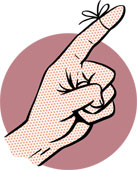httpv://www.youtube.com/watch?v=jaf6zF-FJBk
But is it art?
Yes.
And if you have any doubt about that, go to YouTube and have a look at the outraged comments of some of the viewers. If they’re this angry over something so innocuous and mundane — and a number of them are very angry — then something meaningfully disturbing is happening here. A sample: “I mean WTF?!?” and “This is the ugliest thing I have ever seen” (which is not, of course, beside the point).
Frye makes just a couple of references to Andy Warhol, and they are made, interestingly enough, to illustrate a larger and more important point he is trying to get across to his readers.
Here he is in Words with Power, for example, with reference to ecstatic metaphor:
This is an intensification of the imagery that imitates the descriptive mode, an emphasis on the “thingness” of the objective world, which we find in, for example, Beckett’s Watt and Robbe-Grillet’s Les Gommes, and in William Carlos Williams’s insistence on “not ideas about things but the thing itself,” also the title of a poem by Wallace Stevens. In various forms of painting, such as the pop art of Andy Warhol and in the popularity of Zen Buddhism, with its technique of training one to see, not another world but the same world with a new intensity, there are parallel developments.
And with that in mind, here’s one more comment from a viewer at YouTube:
Honestly, sometimes I think these artistic so-called geniuses just do whatever the fuck passes through their heads and then try to pass it off as hip and edgy. But at the end of the day, kids, it’s just a guy eating a hamburger.
Well, the “end of the day” could also just be the darkness before the dawn, if we insist upon resorting to those kinds of cliches. For example, after the jump you’ll find six minutes of Warhol’s eight hour film Empire. (And, by a remarkable coincidence, tonight is the 46th anniversary of its filming.)

